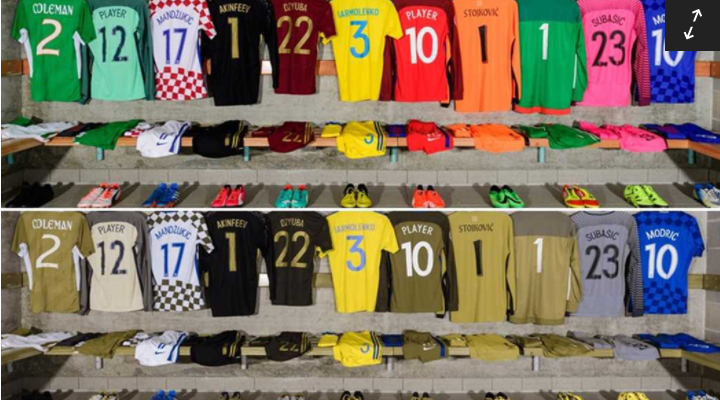FA Taking the Lead on Addressing Colour Blindness in Football

Statistically one in 12 men and one in 200 women will be colour blind. Perhaps you are? Or maybe your son or daughter or team-mate is?
Being colour blind can significantly affect your enjoyment of football – whether as a player, referee, coach or spectator.
Imagine not being able to differentiate between the kit of your team and the opposition? Whether playing, officiating, coaching or watching, the whole experience can become extremely challenging.
In conjunction with Colour Blind Awareness (CBA) and UEFA, The FA has taken the lead in addressing the issue on behalf of the game.
They have published comprehensive guidance notes to help ensure those in leadership roles do not make decisions which adversely affect colour-blind people. For example, when selecting colours for playing kits, training equipment, signage and marketing materials, such as websites and posters.
As far as playing the game goes, who knows what talent has been lost from the game?
As Kathryn Albany-Ward, the founder of Colour Blind Awareness, says: “Young colour-blind people will understandably be put off the game if they can’t follow instructions in training or identify their team-mates.”
This point is emphasised by Dr Marisa Rodriguez-Carmona, from the division of Optometry and Visual Science at City University: “Given colour blindness affects one in 12 males, statistically every male squad will contain at least one colour-blind player.”

Among professional players who had to cope with colour blindness is former Ipswich Town and Charlton Athletic midfielder Matt Holland.
He revealed: “In one particular match when we were in red and the opposition were in dark green I couldn’t tell the colours apart.
“I had to really concentrate by looking at socks because they were easier for me to distinguish. There was nothing else I could do.”
FA chief executive Martin Glenn said: “Our national game should welcome everyone. Age, religion, race, gender, ability/disability or sexual orientation – it really doesn’t matter.
“The FA has obtained advice from a leading expert in the field, confirming that colour blindness should be treated as a disability under the Equality Act 2010. Any club which does not recognise colour blindness as a disability does so at their own risk.”
Peter Gillieron, chairman of the UEFA fair play and social responsibility committee said: “Addressing the problem of colour blindness in football is long overdue.
“UEFA fully supports The FA’s work in this area. We intend to use its blueprint to advise the other 54 UEFA member associations on this important issue.”
For ways you can help maximise awareness, please visit the Colour Blind Awareness website.
Let’s make sure football’s future is ‘For All’.
